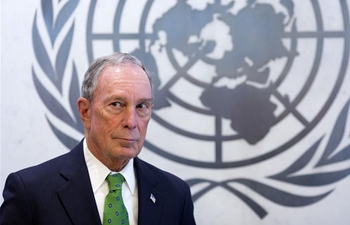WASHINGTON, March 10 (Xinhua) -- The U.S. National Comprehensive Cancer Network (NCCN) has frequently recommended drugs beyond Food and Drug Administration (FDA) approved indications, with weak evidence to support the recommendations, according to a new study.
The network, an alliance of 27 leading cancer centers in the country, was seriously questioned in the study published in the British Medical Journal earlier this week.
The study raised concerns that the NCCN, which often publishes clinical practice guidelines for American oncologists, "justifies the coverage of costly, toxic cancer drugs based on weak evidence."
A total of 47 drugs approved by the FDA between 2011 to 2015 were examined, and comparison was made of FDA approved indications and NCCN recommendations as of March 2016.
These drugs were authorized for 69 FDA approved indications, but the NCCN recommended these drugs for 113 indications, with nearly 40 percent additional recommendations. During 21 months of follow-up, the FDA only granted approval to 14 percent of the additional recommendations.
The study also cited previous research saying that 84 percent of NCCN members involved in making guidelines have received personal payment from the pharmaceutical industry.
Dr. Vinay Prasad, assistant professor of medicine at the Oregon Health and Sciences University, who led the study, was quoted by CNN as saying that cancer patients could be paying more than necessary for treatments.
"What is the evidence supporting those recommendations? In this study we find unfortunately it is weak or lacking in many cases and I think that is of some concern," Prasad said.













